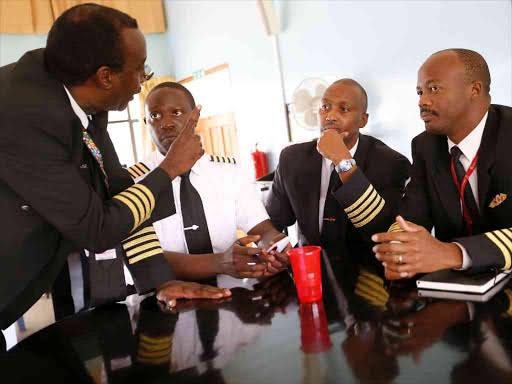All Kenya Airways pilots under the Kenya Airlines Pilots Association (KALPA) are set to go on strike tomorrow (Saturday November 5, 2022).
According to KALPA, none of its pilots will fly any plane belonging to Kenya Airways from tomorrow starting at 6am.
“On October 19, 2022, the association issued a 14-day industrial action notice to the management of Kenya Airways, as the last resort in our attempts to seek better working conditions for our members and ensure that Kenya Airways is managed professionally,” KALPA Secretary-General Captain Murithi Nyagah said.
He said the pilots will proceed on strike despite a court that ordered the organization to rescind its call for a strike. “The Kenya Airways management has not made any meaningful attempt to engage, and have these matters addressed,” said Nyagah.
KQ Pilots Salary: See salaries pilots at Kenya Airways earn
According to Kenya Airways, the strike will see the national carrier incur losses of up to Sh. 300 million every day of the strike.
Through its board of directors, Kenya Airways says that the grievances that have been tabled by pilots under KALPA do not warrant for a industrial strike at a time when the national carrier is struggling to recover.
The national carrier said that any pay deals that the pilots propose should be realistic to the national carrier’s financial status and recovery efforts.
However, the pilots have demanded that KQ restarts contributions to its staff pension fund that was stopped during the pandemic, and the payment of all salaries that were accrued at the time.
The pilots have also demanded the position if Chief Pilot be reviewed, arguing that the current occupant is unqualified for the position.
In August 2022, Kenya Airways reported a loss for the first six months of the year. The airline reported 14 per cent drop to Sh. 9.9 billion from Sh. 11.5 billion in the same period last year.
KQ attributed the loss to high fuel cost that saw the airline spend Sh. 11 billion during the period under review. This then pushed total operational costs to a five year high of Sh. 57 billion compared to Sh 56 billion in 2017.









